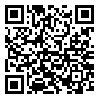مجله رویش روانشناسی از دادن گواهیهای کاغذی معذور است. لطفا تقاضا نکنید. همه گواهی ها در صفحه شخصی کاربران موجود است.
year 9, Issue 1 (spring 2020 2020)
Rooyesh 2020, 9(1): 121-130 |
Back to browse issues page
Download citation:
BibTeX | RIS | EndNote | Medlars | ProCite | Reference Manager | RefWorks
Send citation to:



BibTeX | RIS | EndNote | Medlars | ProCite | Reference Manager | RefWorks
Send citation to:
Babaei A, Mirtaheri G, Mirzaei S, Sharifi M. (2020). Effective Factors on Children's Selective Trust in Other's Testimony. Rooyesh. 9(1), 121-130.
URL: http://frooyesh.ir/article-1-1735-en.html
URL: http://frooyesh.ir/article-1-1735-en.html
1- MA in Educational Psychology, Shahid Beheshti University
2- PhD Student in Psychology, Shahid Beheshti University ,s_mirzaei67@ymail.com
3- Shahid Beheshti University
2- PhD Student in Psychology, Shahid Beheshti University ,
3- Shahid Beheshti University
Abstract: (2967 Views)
Children live socially from birth to adulthood, and learning is an integral part of their living. They won’t achieve the knowledge and skills for life without learning. However, childhood period is not lasting enough for learning all of the massive amounts of information and skills required for living in this world as adults and children aren’t able to acquire the whole of knowledge and skills through their first-hand experience. So, children need to learn from other’s testimony, especially from adults. But the problem is that all people around the children don’t have enough knowledge and they may provide false information, or it is possible that they want to deceive children with intentionally wrong information. Therefore, children could not trust everybody impatiently and accept all of their information without analyzing. In this article, by reviewing the earlier studies, we explain that children in all of their interactions with others trust selectively. Then, fourteen effective factors on children’s selective trust have been explained. Finally, in General Discussion, it is explained that children’s trust is not fixed and it updates all the moments by getting new information about different informants.
Type of Article: Analysis |
Subject:
Developmental Psychology
Received: 2019/05/29 | Accepted: 2019/07/30 | ePublished: 2020/03/29
Received: 2019/05/29 | Accepted: 2019/07/30 | ePublished: 2020/03/29
Send email to the article author
| Rights and permissions | |
 |
This work is licensed under a Creative Commons Attribution-NonCommercial 4.0 International License. |







